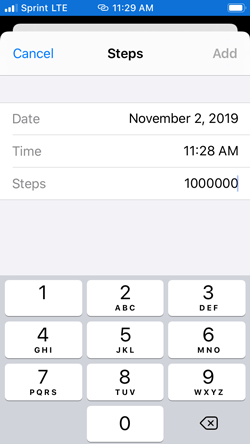Fitness Challenge Blog
How to Manage Fitness Challenge Cheating

Techniques to mitigate the effects of cheating on your wellness challenge.
November 3, 2019 by Joseph
True story… I recently received a call from an admin who was completing a walking challenge but suspected that cheating might be happening. Apparently, several of the participants had spent 10 seconds on Google discovering how to manually enter data into their trackers and were entering upwards of 120,000 steps per day. At roughly 60 miles, any ultramarathoner will tell you that this is possible; however, you couldn’t also be sitting in your office for 8 hours a day. The question is not how to stop cheating (you can’t). The question is, how do you mitigate the effects of cheating.
Why you can’t stop cheaters
A simple search in YouTube for "Fitness Tracker Cheating" will quickly show why using trackers to validate a challenge is impossible. To achieve the desired effect for your wellness program, challenge participants should be competing for the right reasons. A fitness challenge should always be part of a wider wellness program and should be integrated into a complete learning block. If you want to emphasize fitness this month, run a walking challenge with a daily limit on the number of steps and give bonus points for taking the stairs and parking the farthest away from the office. In other words, things that can easily be validated by other employees. Participants will be much less likely to cheat if others can call them out on it. Keep in mind that you do NOT want to become the challenge cop so emphasize the fun aspect.
Simple tweeks to "cheat-proof" your challenge
If at all possible, remove the 1st place, 2nd place, etc. No, I’m not all about participation trophies just for showing up but, considering you don’t have challenge refs, you should not incentivize cheating. I prefer weekly drawing where, if you have a minimum number of challenge “points”, you are entered into a prize drawing. This reduces the need to cheat to just that minimum drawing level. However, if you must do a 1st place, 2nd place and so forth, try being a little sneaky as well:
- Have many tiers so that the award for 2nd is almost as good 1st and 3rd is almost as good as 2nd
- Make the lower tiers secretly more desirable. While the top tiers have more of a monetary value (say a $100 gift card to a gym, or $90 gift card to a nutrition center), the lower tiers have a monetary value ($50 Visa gift cards) that more participants would value.
- Use teams so that high performers can be averaged out by low performers and set a daily maximum on data entered per participant.
If you can’t beat 'em, join 'em
We have established that participants can and will cheat when entering data; therefore, make the activity they cheat on just one aspect of the total challenge. To do this, set the daily-maximum of the walking component to 10,000 steps which most of your participants can achieve. Furthermore, apply a multiplier to the walking activity of 0.001 so that participants will receive 1 point for every 1,000 steps.
With the walking component set, add additional activities that can be easily measured such as:
- Using the stairs instead of the elevator (depending on the building of course)
- Parking in the farthest available parking spaces (also worksite dependent)
- Drink water instead of coffee or soft drinks at work
- Attending periodic wellness lunch and learns
- Packing lunch instead of eating out
- Participating in a lunch or break walking group
- Using a standing desk instead of sitting
- Filling out any required health and wellness forms
- Joining a smoking cessation program
- Any number of other activities or habits you are trying to encourage
The list could go on forever, but the important thing is that options are all easily verifiable by any participant and therefore validate the legitimacy of the challenge. Sure, everyone gets to use their tracker to tally their steps but there are other, verifiable, aspects of the challenge which may end up being much more valuable in creating healthy habits than walking. I might also suggest a bonus activity you could employ whereby participants would get extra points for submitting an image of a participant cheating on one of the activities… but I would be careful with this. If done in a lighthearted manner, it could be fun like calling out a friend cheating at Euchre or Monopoly. But, if not handled correctly and without the right audience, it could cause some resentment.
Team up on the cheaters
As mentioned previously, a good way to reduce the effect that cheating can have on a challenge is to implement teams. While the exaggerated data collected from some participants would still be counted in the team total, it would be counteracted by those who are not cheating. Once again, I would still establish daily upper limits on data collected but you could set the limits higher; say 20,000 – 30,000 steps in the case of a walking challenge. Yes, if you had a whole team of participants entering inaccurate data, that would obviously skew the results but that is a good reason to randomly select team members and make sure that the same teams do not compete together in each challenge.
Final thoughts
Once again, we can’t stop cheating on a fitness challenge; however, this does not mean that you can’t put countermeasures in place to mitigate the effects of cheating. The point of a wellness challenge is to lay the groundwork for learning healthy habits and hopefully have fun. Instead of just throwing out a challenge and hoping everyone plays fair, take a little time to plan out the challenge so that everyone can have a good time and maybe even learn a little as well.
<< Prev Next >>